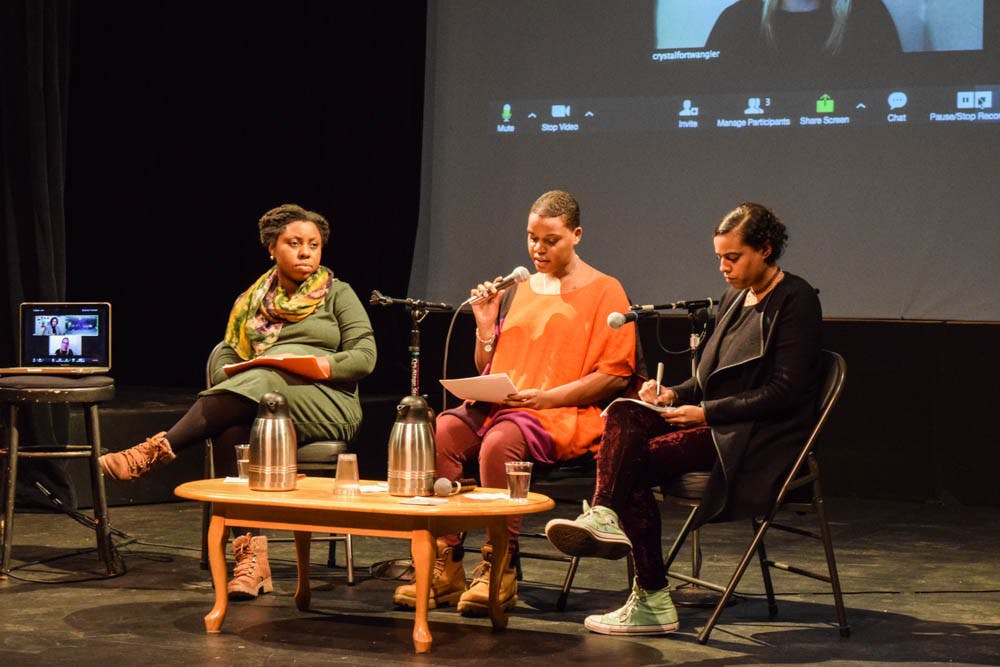The Africana Studies Department and the Puerto Rican Association engaged the University community in a discussion of the issues different colonies in the Caribbean currently face after Hurricanes Irma and María in a panel titled “The Disaster is Colonialism.”
The discussion began by exposing Puerto Rico’s historical, socio-political and economic background, which led to the vulnerable state the island finds itself in, said panelist Katsí Yarí Rodríguez Velázquez GS, who is from Puerto Rico.
She explained that the disaster Puerto Rico currently faces can be traced back to before Hurricane María and is entrenched in Puerto Rico’s fiscal crisis and colonial status.
“Excluding the colonial conditions that constrain Puerto Rico’s possibilities to transcend the crisis undermines the dangers behind the limited ways in which relief has been understood and enacted,” Rodríguez said.
Shariana Ferrer Núñez, member of the Puerto Rican group Colectiva Feminista en Construcción, and Crystal Fortwrangler, an independent filmmaker and U.S. Virgin Islands specialist, also contributed on this topic via Skype.
Afterwards, Haidiya Sewer GS briefed the audience about how many of the U.S. Virgin Islands have slowly been recovering from the 2008 recession and have some of the highest rates of death per capita. Some of the islands have seen increases in crime and have also experienced regular power outages.
Sewer emphasized that this was due to the colonial state the islands find themselves in, especially because the residents have “second-class American citizenship.” Because they do not have the same rights as citizens of the U.S. states, the islands receive much less federal aid than states do.
“Colonialism exacerbates the effects of the Hurricanes Irma and María,” Sewer said.
After the panelists concluded their presentations, a discussion with the audience commenced, which further expanded on topics such as tourism in these regions, how climate change is affecting them and how opting for environmentally sustainable practices may lead to unwanted gentrification.
The event was organized because the panelists believed that the American media had not covered the essential role of colonialism in the hurricane emergency that affected Puerto Rico and the U.S. Virgin Islands, Rodríguez told The Herald.
“We hope to open up a conversation that should be expanded in terms of understanding the centrality of the role of colonialism in the subjugation of people in Puerto Rico and the Virgin Islands,” she added.





